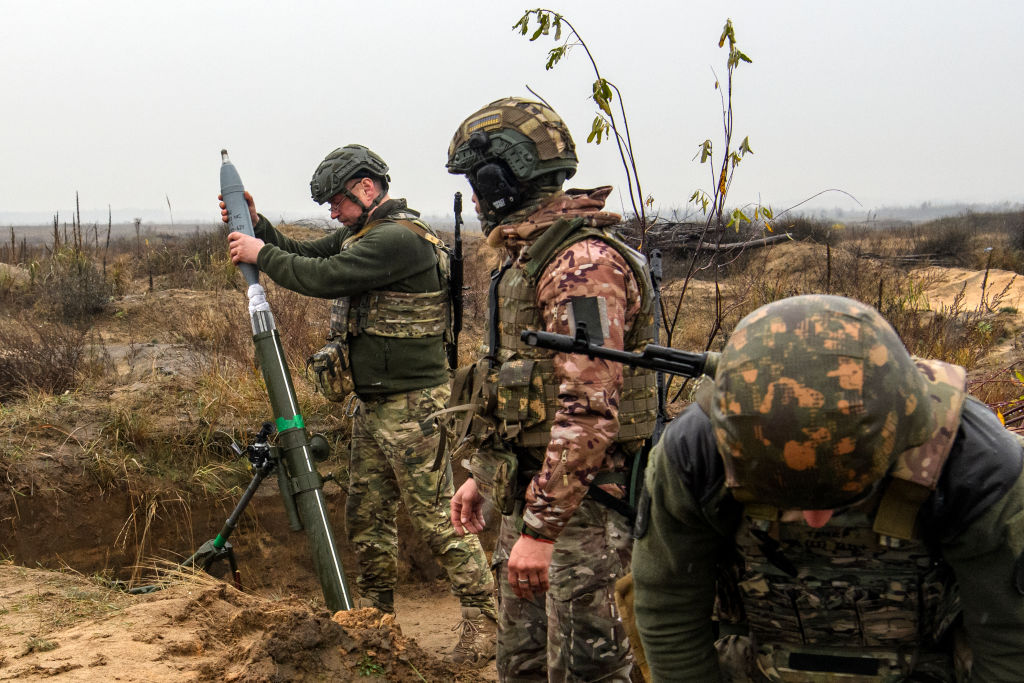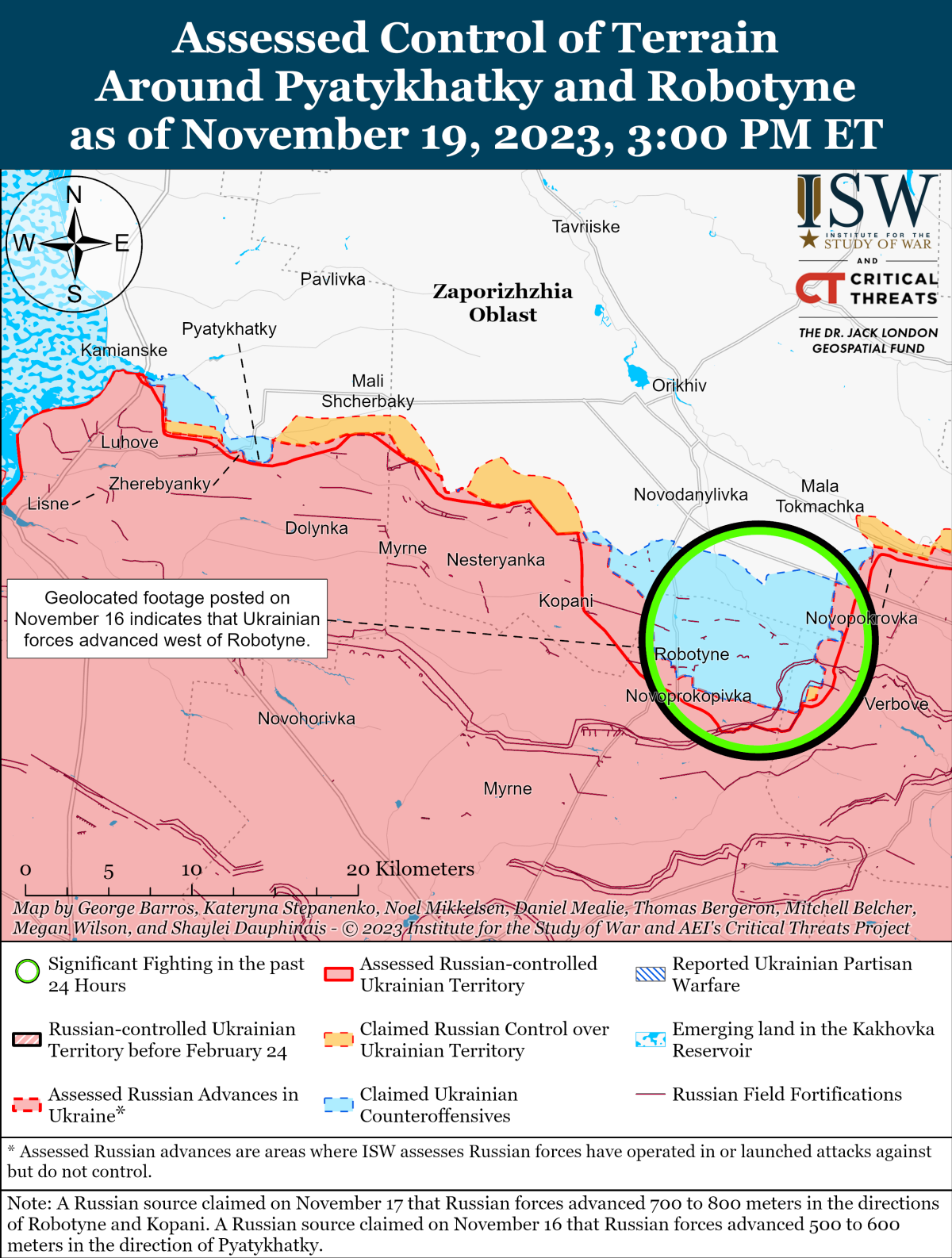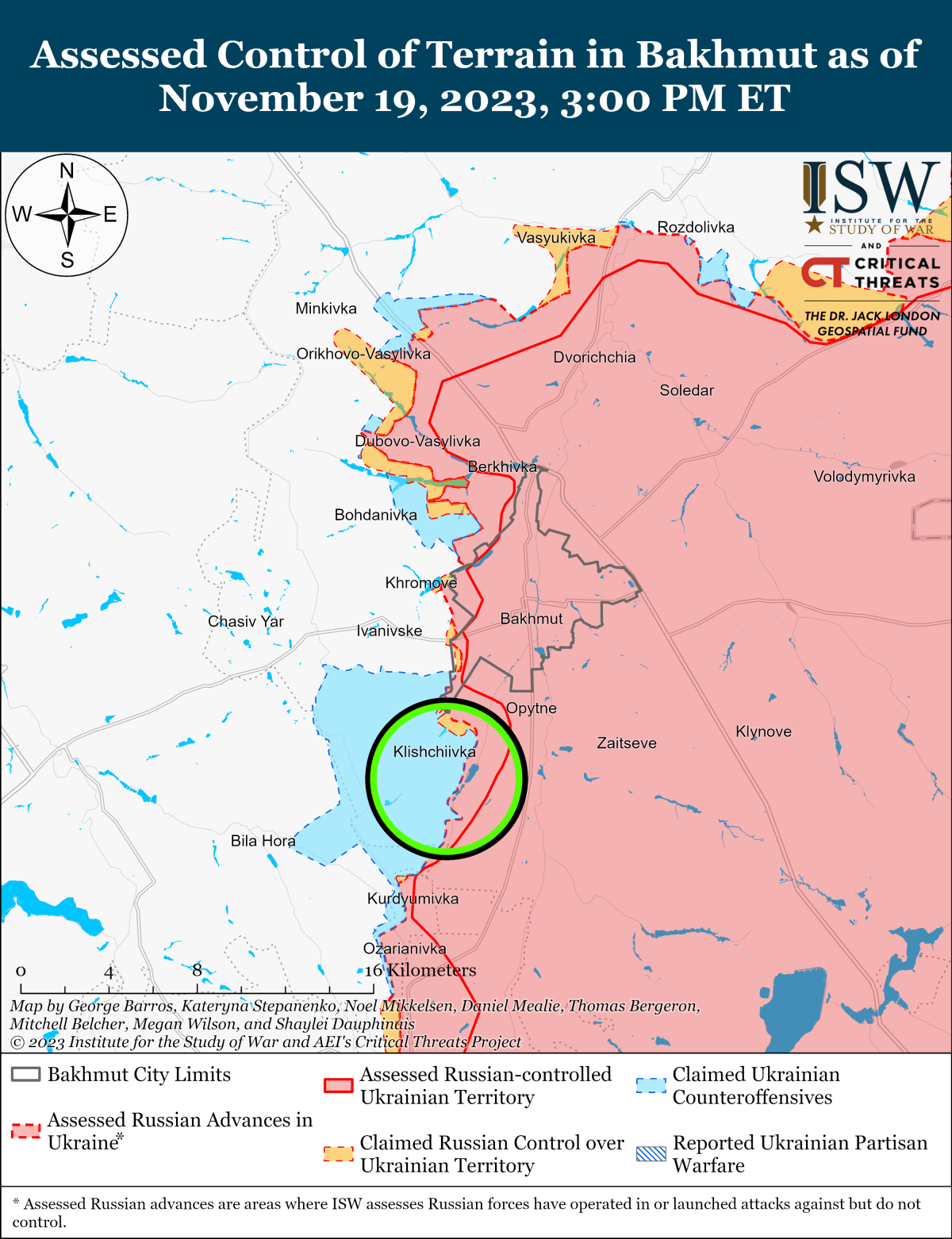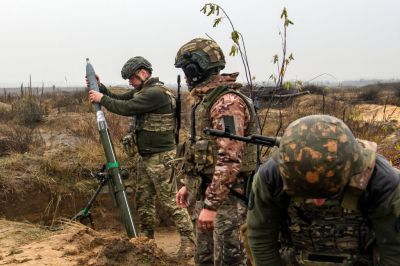Happy Monday, and happy birthday to President Joe Biden, who turns 81 today and breaks his own record, as he does every day, for oldest president in U.S. history. We hope it’s a double-ice-cream-scoop day.
Quick Hits: Today’s Top Stories
- U.S. Deputy National Security Adviser Jon Finer said Sunday the United States, Qatar, and Israel are closing in on a deal with Hamas to secure the release of some of the hostages held in Gaza, noting the negotiating parties were “maybe closer than we have been since the beginning of this process to getting this deal done.” Sheikh Mohammed Bin Abdulrahman al-Thani, Qatar’s prime minister, said yesterday that the only remaining challenges are “practical and logistical.” But earlier this weekend, Israeli Prime Minister Benjamin Netanyahu emphasized that no deal had been agreed upon. Incorrect reports on Saturday claimed a “tentative U.S.-brokered deal” had been reached, but American officials quickly denied the claim.*
- Israel Defense Forces (IDF) continued their operations in northern Gaza over the weekend, clearing Hamas tunnels—including some running under the Al-Shifa hospital. Israeli officials announced on Friday that the IDF will advance into southern Gaza, the part of the Strip where Israel has urged Palestinian civilians to flee. Meanwhile, Israel and Hezbollah traded intense rocket and missile strikes over the weekend in a sign the conflict in the North is escalating. Two United Nations-run schools, located in northern Gaza and serving as shelters for displaced Palestinians, were reportedly hit by airstrikes over the weekend, resulting in dozens of deaths—though U.N. officials did not specify who was responsible for the strikes. Yesterday, Iran-backed Houthi rebels hijacked a cargo ship in the Red Sea reportedly owned by an Israeli businessman, and the Houthis took all 25 crew members—none of whom are Israeli, according to Netanyahu’s office—hostage and said, “All ships belonging to the Israeli enemy or that deal with it will become legitimate targets.”
- Outsider libertarian Javier Milei won the Argentine presidential election on Sunday against a backdrop of record inflation as his opponent, finance minister Sergio Massa, conceded even before final results were tallied. Provisional results show Milei with roughly 56 percent of the vote. Milei has expressed a desire to forge stronger ties with the U.S., and his plans to reform Argentina include shutting down the country’s central bank (and many of its government ministries) and “dollarizing” the economy—ditching the peso for the U.S. dollar.
- In a Washington Post op-ed on Saturday that addressed both the Israel-Hamas and Russia-Ukraine wars, President Joe Biden laid out a vision for Palestinians once the conflict is over. “Gaza must never again be used as a platform for terrorism,” Biden wrote. “There must be no forcible displacement of Palestinians from Gaza, no reoccupation, no siege or blockade, and no reduction in territory. … The voices of Palestinian people and their aspirations must be at the center of post-crisis governance in Gaza.” He called for a “single governance structure” under the Palestinian Authority for both Gaza and the West Bank, and condemned “extremist violence” against Palestinians in the West Bank, threatening U.S. visa bans targeting Israeli settlers who committed violence against civilians.
- Biden on Thursday signed into law the short-term stopgap spending bill to fund part of the government until January 19 and the remainder till February 2, averting a government shutdown that otherwise would have gone into effect over the weekend. The measure passed the Senate by a vote of 87 to 11, and set congressional lawmakers on a path for another round of spending negotiations in the coming weeks.
- The Department of Education’s Office for Civil Rights launched investigations this week into seven schools over reports of alleged incidents of antisemitism and Islamophobia. Three ivy league institutions—Columbia University, Cornell University, and the University of Pennsylvania—were named as part of the investigation, as well as a Kansas school district on the outskirts of Wichita. “When students can’t feel safe walking from their dorm, to their classroom, because they’re afraid that they’re gonna get harmed, that’s unacceptable,” U.S. Secretary of Education Miguel Cardona said. The Education Department will provide recommendations at the end of their investigations, and schools could potentially lose federal funding if they fail to comply with the recommendations.
- House Republicans on Friday began releasing 44,000 hours of video footage captured by security cameras on January 6, 2021, in a move speaker of the House Mike Johnson said would allow individuals to “see for themselves what happened that day, rather than having to rely upon the interpretation of a small group of government officials.” Ultimately, about 95 percent of the total footage will be made available for public viewing—though individual faces will be blurred to protect civilian privacy and a small amount of content that includes sensitive security information will be excluded. Former President Donald Trump celebrated the move on Truth Social: “Congratulations to Speaker of the House, Mike Johnson for having the Courage and Fortitude to release all of the J6 Tapes, which will explicitly reveal what really happened on January 6th!”
- Colorado judge Sarah Wallace ruled Friday that—although she believed he engaged in “insurrection” on January 6, 2021—Trump would not be removed from the state’s 2024 primary ballot under the 14th Amendment. The outcome followed similar rulings in Minnesota and Michigan, though notably was the first time a judge found that Trump participated in an insurrection. “Such incendiary rhetoric, issued by a speaker who routinely embraced political violence and had inflamed the anger of his supporters leading up to the certification, was likely to incite imminent lawlessness and disorder,” Wallace wrote in her ruling.
- Union members from all of the Big Three Detroit automakers—General Motors, Ford, and Stellantis—ratified new labor contracts, each of which included at least 25 percent in wage increases. Roughly two-thirds of auto workers at Ford and Stellantis voted in support of the new contracts, while a smaller 54 percent of GM workers voted in favor of their new agreement.
- Sam Altman, CEO of ChapGPT developer OpenAI, was abruptly fired by the company’s board of directors on Friday—only to be courted to return to the company by investors over the weekend. The board of directors officially announced Sunday night Altman wouldn’t rejoin the company, leading Microsoft to hire the former executive—and OpenAI co-founder Greg Brockman—to lead a new artificial intelligence research team. Altman, who has become one of the public faces of AI in recent months, reportedly requested a new company governance structure as a condition of his return (which is not yet inevitable). The company began its life as a nonprofit, and though it has since transitioned to a for-profit model, the company still answers to the original nonprofit board, leaving investors with no official say in the company’s business.
- Former first lady Rosalynn Carter died on Sunday, just days after entering hospice care in her Georgia home. “Rosalynn was my equal partner in everything I ever accomplished,” former President Jimmy Carter said in a statement. “She gave me wise guidance and encouragement when I needed it. As long as Rosalynn was in the world, I always knew somebody loved and supported me.” Mrs. Carter, 96, was married to the former president for 77 years, and served as the honorary chair of the President’s Commission on Mental Health while the Carters were in the White House.
What Makes a ‘Stalemate’?

Last week, the Ukrainian military released footage of fighting around the town of Bakhmut in eastern Ukraine. The now-leveled area had been the site of one of the few Russian military successes in the spring, largely due to the efforts of mercenary Wagner forces that have more or less been disbanded. The roughly minute-long video clip showed Ukrainian soldiers in full tactical gear, moving across a burned-out landscape as machine gun fire interrupted the bright, clear day. A tree stripped of its branches smoldered from the inside, and the ground was covered in ash and craters—a literal “no man’s land” between Ukrainian positions and abandoned Russian trenches. A handful of Ukrainian soldiers dove into a trench. Later during the video (several jump cuts make it difficult to tell how much time has passed) a mortar exploded ahead of them.
It’s a small slice of the kind of fighting that’s been happening almost every day since Russia’s invasion in February 2022. Ukraine’s summer counteroffensive did not achieve the significant, desired progress into Russian-occupied territory, but also wasn’t without its modest Ukrainian successes. Military analysts and Ukrainian officials have been careful about labeling the conflict a “stalemate,” but there’s almost no question the war will be long—bringing to the fore questions about the durability of Western support. As winter closes in, Ukrainian offensives will continue under the threat of significant Russian aerial attacks on civilian infrastructure.
Ukrainian forces launched their counteroffensive in June against Russia’s so-called Surovikin line, a three-tiered network of trenches and booby traps extending some 900 miles and named for Russian general Sergey Surovikin. Breaching this line and recapturing territory all the way to the Sea of Azov in southeastern Ukraine was an original objective of the counteroffensive—plowing a corridor through Russian-occupied territory would sever Moscow’s supply lines to the Crimean Peninsula, which Russia has occupied since 2014.
But progress toward that goal has been scant, in part because of the significant fortifications the Russian army built in the winter and spring. “The invading Russian forces weren’t sitting on their hands” as Ukraine was preparing for the counteroffensive, Bradley Bowman, director of the center on military and political power at the Foundation for Defense of Democracies, told TMD. “They were laying minefields. They have the means to lay minefields much, much faster than Ukraine can work their way through them. They were digging trenches. They were building fortifications.”
The war zone, he added, evoked a significant historical callback: “You can almost think of it as World War I with drones.” (For additional context on how drones are shaping the conflict in Ukraine, be sure to read Bennett Murray’s recent piece for The Dispatch reported from the trenches in Donetsk.)
Kyiv has made perhaps its most significant gains in the Zaporizhzhia Oblast in southeastern Ukraine, according to open source geospatial intelligence mapped by the Institute for the Study of War (see an interactive map of the battlefield here). Directly south of the town of Orikhiv, Ukrainian forces have retaken less than 10 miles of territory from the Russians as they work toward the logistical hub in the village of Tokmak—still roughly 15 miles from their current position. Ukrainian forces managed to break through the first line of Russian defenses in the area, encountering ceaseless drone attacks and dense minefields in the battle for the tiny hamlet of Robotyne. “Without the mines, we would already be in Tokmak,” one Ukrainian soldier told CNN in September. Ukrainian forces are still around 50 miles from the Sea of Azov.

The area around the town of Bakhmut—affectionately dubbed a “meat grinder” by the late head of the Wagner group, Yevgeny Prigozhin—in eastern Ukraine is another hotspot for counteroffensive efforts. Ukrainian forces have seemingly retaken roughly five miles of terrain south of the city, as well as some more modest gains to the north of the city.

Even if the land offensive hasn’t yet yielded significant Ukrainian victories, Kyiv’s forces have been remarkably successful at repelling Russia’s Black Sea Fleet, using missile and drone strikes to damage more than a dozen Russian ships since the beginning of the war, according to Ukrainian sources. In April 2022, Kyiv sank the Moskva, the Black Sea fleet’s flagship cruiser—an embarrassing blow to the Russians. More recently, the Ukrainians have used long-range missiles to damage a Kilo-class submarine and a new missile-bearing Russian warship in a shipbuilding yard in Crimea, among other assets. The coup de grâce came in mid-September, when Ukrainian forces struck the Russian fleet’s headquarters in Sevastopol, Crimea, forcing the majority of the fleet to retreat from the Ukrainian coast in early October to better-protected ports.
Ukraine’s David-and-Goliath effort—outnumbered 12 to one in the Black Sea by Russian ships at the start of the war and lacking even a single warship—allowed commercial grain ships to dock in the port of Odessa with less fear of Russian harassment, after Moscow effectively reinstated its naval blockade of Ukraine in July when it reneged on the Black Sea grain deal.
Taken together, is it apt to call the conflict a “stalemate”? It’s a fraught word, drawing to mind the senseless—and often futile—brutality of World War I trench warfare. General Valerii Zaluzhnyi, the commander-in-chief of Ukraine’s armed forces, didn’t shy away from that image earlier this month, much to his boss’ chagrin. “Just like in the first world war, we have reached the level of technology that puts us into a stalemate,” he told The Economist. “There will most likely be no deep and beautiful breakthrough.”
But Ukrainian President Volodymyr Zelensky pushed back on that idea. “Today time has passed and people are tired, but this is not a stalemate,” he told reporters at a press conference in early November with European Commission President Ursula von Der Leyen. A top Zelensky aide went even further, saying Zaluzhnyi’s comments “make the aggressor’s job easier.”
Though the debate may seem like semantics, specific language could matter as Ukraine fights its battle for hearts and minds in the U.S. and Europe. “The scariest thing is that part of the world got used to the war in Ukraine,” Zelensky told Time magazine earlier this month. “Exhaustion with the war rolls along like a wave. You see it in the United States, in Europe. And we see that as soon as they start to get a little tired, it becomes like a show to them: ‘I can’t watch this rerun for the 10th time.’”
Facing the Surovikin line, the Ukrainians are increasingly short on manpower and ammunition, with insufficient resupplies of the latter coming from the West. “We have given the Ukrainians just enough [artillery shells] to hold—and I would say it’s even miraculous that they’re holding and taking [territory]—but certainly not enough to win,” Iulia Joja, the director of the Middle East Institute’s Black Sea program, told TMD. Those scant supplies are a problem both of political will and Western supply. Earlier this year, President Joe Biden approved the transfer of controversial cluster munitions in part because the U.S. lacked a sufficient supply of 155mm artillery shells to meet Ukrainian needs. (Ukrainians are firing an estimated 6,000 to 8,000 155mm shells per day.) Last week, European officials confirmed that the EU will not be able to honor its pledge to provide Ukraine with 1 million of the crucial shells by March of next year.
Israel’s war in Gaza may put even more pressure on the West’s limited supply. Zelensky said last week that he’s already noticed a difference in the number of 155mm artillery shells being delivered to his war-torn country. “It’s not like the U.S. said: ‘We don’t give Ukraine any.’ No!” he told reporters. “It’s just that everyone is fighting for [stockpiles] themselves. This is life. I’m not saying that this is positive, but this is life, and we have to defend what’s ours.”
Congress is unlikely to approve additional U.S. aid to Ukraine for at least another month, even as the current pot of funding is running out. Ukrainians are preparing for a Russian bombardment akin to last winter’s attacks on civilian infrastructure, and are in need of additional air defense systems to counter those efforts. “The Russians have started once again their terror attacks against the Ukrainian energy grid and other critical infrastructure,” Dmitri Alperovitch, founder of Silverado Policy Accelerator, told TMD. “They’ve been stockpiling drones and missiles for that very thing. And now that the cold weather is upon us, they’re starting to execute that campaign to try to cause a humanitarian crisis in Ukrainian cities that could be left without power.”
“I think they need both more capabilities and more ammunition for the winter and this will be able to protect their critical infrastructure in their civilian centers to an imperfect extent because it’s impossible to cover all the territory. We wouldn’t have enough to give for that,” Joja told TMD. “But it’s better than nothing.”
Worth Your Time
- Writing for the New York Times, Eli Saslow profiled Brian Mock’s tumultuous relationship with his son A.J. after Brian stormed the Capitol on January 6. “They’d spent almost three years relitigating the events of Jan. 6, 2021, trying to make sense of what that day meant for their relationship, for the country and for the future of American democracy,” Saslow wrote. “Now another divisive presidential election involving Donald Trump was less than a year away, and they were still staring at the same screen and interpreting different realities, each of them coming away with more questions than answers. A.J. searched the video for clues as to how the single father who’d been an advocate for the homeless and supported A.J. when he came out as gay had become the man pressed against police barricades alongside Proud Boys and neo-Nazis. Brian studied his son’s reactions and tried to understand how the one person he trusted most—who he had put in charge of his home and his finances when he left that day for Washington—was also the person who’d turned him in to the F.B.I.”
- Ridley Scott’s Napoleon is in theaters this Wednesday, and Adrian Wooldridge took the opportunity to explore one of the historical profession’s seminal debates. “What is the role of great men and women in history?” Wooldridge asked in his Bloomberg column. “Is history made by unique individuals pursuing their dreams? Or is it the product of vast impersonal forces? This is more than just an idle question. The answer we give shapes the sort of history we teach in schools and universities. It also influences our approach to civic life: The more we emphasize the role of human agency, the more we will be inclined to be active citizens.” He tracked how historians and writers like E.H. Carr and Leo Tolstoy have criticized the great man theory of history. “The historians made a substantial point—that individuals don’t make history just as they please but do so in the context of established power relations,” he wrote. “Alexander the Great could not have conquered the known world if his father had not been the most powerful king in Greece. Napoleon would not have been able to seize control of France if a popular revolution had not swept aside the old regime and plunged the country into anarchy. But structural determinism can go too far by emptying history entirely of agency and personality.”
Presented Without Comment
Milwaukee Journal Sentinel: “A group of nearly two dozen people waving swastika flags and chanting antisemitic rhetoric marched on the Wisconsin state Capitol grounds Saturday afternoon, performing a salute originally used by Nazis at political rallies, often called the ‘Hitler salute.’”
Also Presented Without Comment
Former Obama Strategist David Axelrod on the Biden White House: “‘I don’t care about them thinking I’m a prick—that’s fine,’ the strategist told me. ‘I hope they don’t think the polls are wrong because they’re not.’”
Toeing the Company Line
- In the newsletters: The Dispatch Politics crew checked out a DeSantis PAC’s voter turnout apparatus in Iowa, Haley explored (🔒) the push to expel Rep. George Santos from the House, Jonah lamented (🔒) the monetization of the truth on social media, Nick weighed in (🔒) on anonymous online speech, and Stirewalt wondered (🔒) if Nikki Haley can continue her momentum.
- On the podcasts: Jonah ruminated on America’s very online youth, author Stacey Schiff joined Sarah (🔒) on The Dispatch Book Club to talk about her biography of Samuel Adams, and Jamie talked to Maggie Haberman of the New York Times about what a second Trump term would actually look like.
- On the site over the weekend: Guy Denton reviewed a very disappointing Frasier reboot, Michael Lucchese analyzed the historical and inspirational importance of Russell Kirk’s The Conservative Mind, and Maria Powell wrote about the plight of people of faith in Gaza.
- On the site today: Klon Kitchen describes how Sam Altman’s ouster at (and potential return to) OpenAI reflects the ongoing debate about speed vs. safety in developing artificial general intelligence, and Kevin Carroll argues deploying the National Guard to help with immigration is not just unwise on the merits, but because it could further politicize the military.
Let Us Know
How do you think the U.S. should prioritize weapons distribution when two allies in need of assistance are both at war?
Update, November 20, 2023: Clarified the timing of various statements about the possibility of a short-term ceasefire in Israel.








Please note that we at The Dispatch hold ourselves, our work, and our commenters to a higher standard than other places on the internet. We welcome comments that foster genuine debate or discussion—including comments critical of us or our work—but responses that include ad hominem attacks on fellow Dispatch members or are intended to stoke fear and anger may be moderated.
With your membership, you only have the ability to comment on The Morning Dispatch articles. Consider upgrading to join the conversation everywhere.